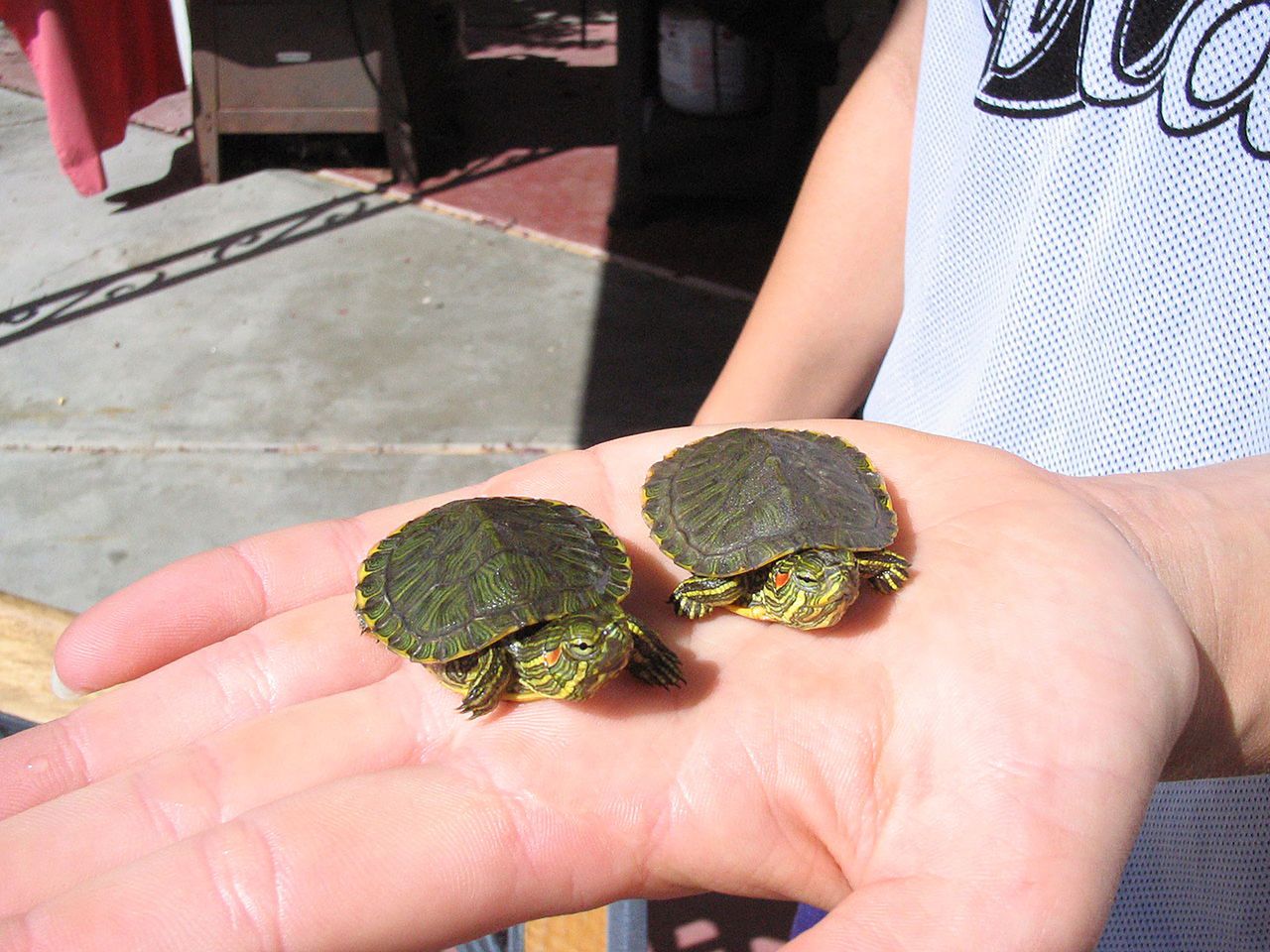Pet turtles linked to salmonella outbreak in 11 states
Public health officials are investigating a multi-state outbreak of salmonella linked to small turtles, the Centers for Disease Control and Prevention announced.
Twenty-six cases in 11 states – California, Georgia, Illinois, Kentucky, Missouri, New York, North Carolina, Ohio Pennsylvania, Tennessee and Virginia – have been reported with nine hospitalizations nationwide. Tennessee has been the hardest hit with six salmonella cases, followed by Pennsylvania with four.
The true number of sick people from the outbreak is “likely much higher,” and is not limited to the states with reported cases, according to the CDC.
“This is because many people recover without medical care and are not tested for salmonella. In addition, recent illnesses may not yet be reported as it usually takes 3 to 4 weeks to determine if a sick person is part of an outbreak,” a CDC notice said.
The first incident linked to the outbreak was reported in October 2022; the most recent was in July 2023.
Symptoms of salmonella include fever higher than 102 degrees; diarrhea, especially if it lasts for more than three days and is not improving or is bloody; intense vomiting; and signs of dehydration, such as not urinating much, dry mouth and throat and feeling dizzy when standing.
Linked to turtles
Pet turtles of any size can carry Salmonella germs in their dropping even if they look healthy and clean, the CDC warns. These germs can easily spread to their bodies, tank water and any other areas where they live. You can get sick from touching a turtle or anything in its environment and then touching your mouth or food with unwashed hands and swallowing the Salmonella germs.
Small turtles are of particular concern.
Federal law bans the sale of turtles with shells less than 4 inches long as pets because they can cause many illnesses, especially in young children. Despite this ban, the CDC said, these turtles can sometimes be found online and in stores, flea markets and roadside stands.
Want to own a turtle? Here’s what you should do, according to the CDC:
- Pet turtles are not recommended for children younger than 5, adults aged 65 and older, or people with weakened immune systems. These people are more likely to get a serious illness from germs that turtles can carry.
- Only buy turtles with shells longer than 4 inches and buy them from a reputable store.
- Always wash your hands thoroughly with soap and water right after touching or feeding your turtle and after touching or cleaning the area where it lives and roams. Adults should make sure young children are washing their hands properly.
- Don’t kiss or snuggle your turtle, and don’t eat or drink around it. This can spread Salmonella germs to your mouth and make you sick.
- Keep your turtle out of your kitchen and other areas where you eat, store, or prepare food.
- In cleaning, use a wash tub and sponge or scrub that are just used for your pet. You can also use a laundry sink or bathtub, but make sure to remove people’s items from the sink and tub before cleaning pet items. Then thoroughly clean and disinfect the sink or tub immediately after.
- Using a kitchen sink may spread germs to your food. If the kitchen sink is the only place you can clean pet items, thoroughly clean and disinfect the sink and the area around the sink immediately after.
- If you decide pet turtles are not the right fit for your family:
- Don’t release your turtle outside. Releasing pets into the wild can disrupt wildlife and may be prohibited by law in certain states.
- Call your local reptile rescue, animal shelter, or pet store about options for safely rehoming your turtle.
